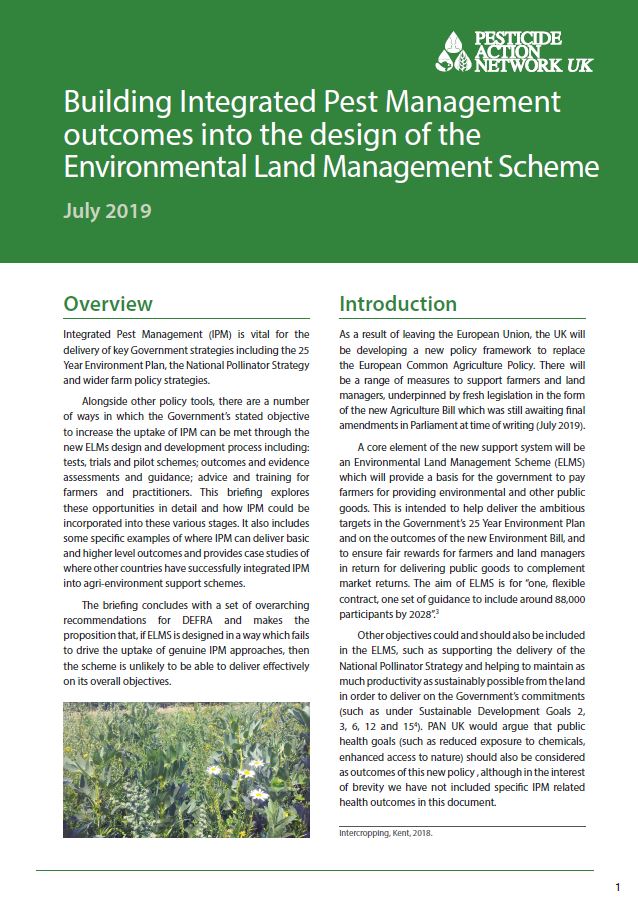Building Integrated Pest Management outcomes into the design of the Environmental Land Management Scheme
As a result of leaving the European Union, the UK will be developing a new policy framework to replace the European Common Agriculture Policy. There will be a range of measures to support farmers and land managers, underpinned by fresh legislation in the form of the new Agriculture Bill, which has not yet been finalised.
A core element of the new support system will be an Environmental Land Management Scheme (ELMS) which will provide a basis for the government to pay farmers for providing environmental and other public goods. This is intended to help deliver the ambitious targets in the Government’s 25 Year Environment Plan and on the outcomes of the new Environment Bill, and to ensure fair rewards for farmers and land managers in return for delivering public goods to complement market returns.
So far, there has been little attention given to the role that Integrated Pest Management (IPM) and pesticide reduction overall could play in both delivering the objectives of the ELMS and helping farmers and land managers to provide the public goods identified. IPM is a holistic approach to managing pests, diseases or weeds in which chemical pesticides are used only as a last resort, if at all.
Increasing the uptake of IPM by UK farmers is vital to drive a reduction in pesticide use. There are a number of ways in which this objective can be met through the new ELMs design and development process including: tests, trials and pilot schemes; outcomes and evidence assessments and guidance; advice and training for farmers and practitioners. This briefing explores these opportunities in detail and how IPM could be incorporated into these various stages. It also includes some specific examples of where IPM can deliver basic and higher level outcomes and provides case studies of where other countries have successfully integrated IPM into agri-environment support schemes.
The briefing concludes with a set of overarching recommendations for DEFRA and makes the proposition that, if ELMS is designed in a way which fails to drive the uptake of genuine IPM approaches, then the scheme is unlikely to be able to deliver effectively on its overall objectives.

